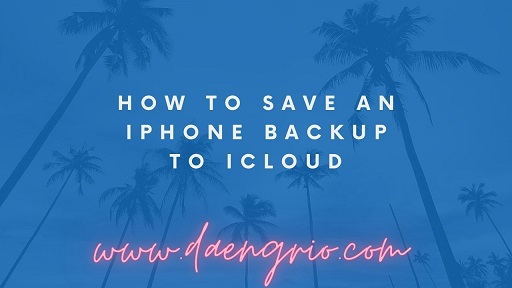Connecting an iPhone to a computer is the first step in learning how to backup an iPhone to iCloud. iTunes will detect your iPhone after it has been connected. Then, you will be provided with a list of data kinds. Select the data type to be backed up. Then, you will be contacted when the process has concluded.

Once connected, open your computer’s Finder. Click “General” after selecting the iPhone from the sidebar. Windows users should launch iTunes. Ensure that the backup is both enabled and encrypted. If the backup fails due to insufficient storage space in iCloud, you can remove the files manually.
To avoid losing vital data, it is essential to periodically back up your iPhone. Once every two weeks is the recommended iTunes backup frequency. You should allow at least 30 minutes to complete the process. iTunes backs up your iPhone locally on your computer, whereas iCloud stores your backups on a remote server.
A backup of your iPhone will allow you to restore it without losing any settings and in a timely manner. Be sure to back up the apps you use the most and disable the ones you don’t. Additionally, backup your images, videos, and texts to your iCloud account.
After backing up your iPhone using iTunes, you can restore it by selecting Restore from Backup. After restoring your iPhone, you should also consider creating a regular backup routine to safeguard its vital data. This is an excellent technique to safeguard your iPhone should anything happen to it.
iCloud can be handy in a variety of circumstances, but there are also some disadvantages. iCloud does not store a large number of files. It backs up your photographs, movies, and settings basically. Additionally, it stores any purchased content you have downloaded into your iPhone.
If you do not have iTunes, you can back up your iPhone using the Finder. The Finder window will display the device’s name and location on the iPhone. The second option is to encrypt the backup data. You can even password secure it if you so choose.
Additionally, you may back up your iPhone to your PC in addition to iCloud. This should be performed frequently to prevent severe data loss. Additionally, keeping an iPhone backup protects you against loss and theft. You will have access to a backup of your iPhone in the event of an emergency.